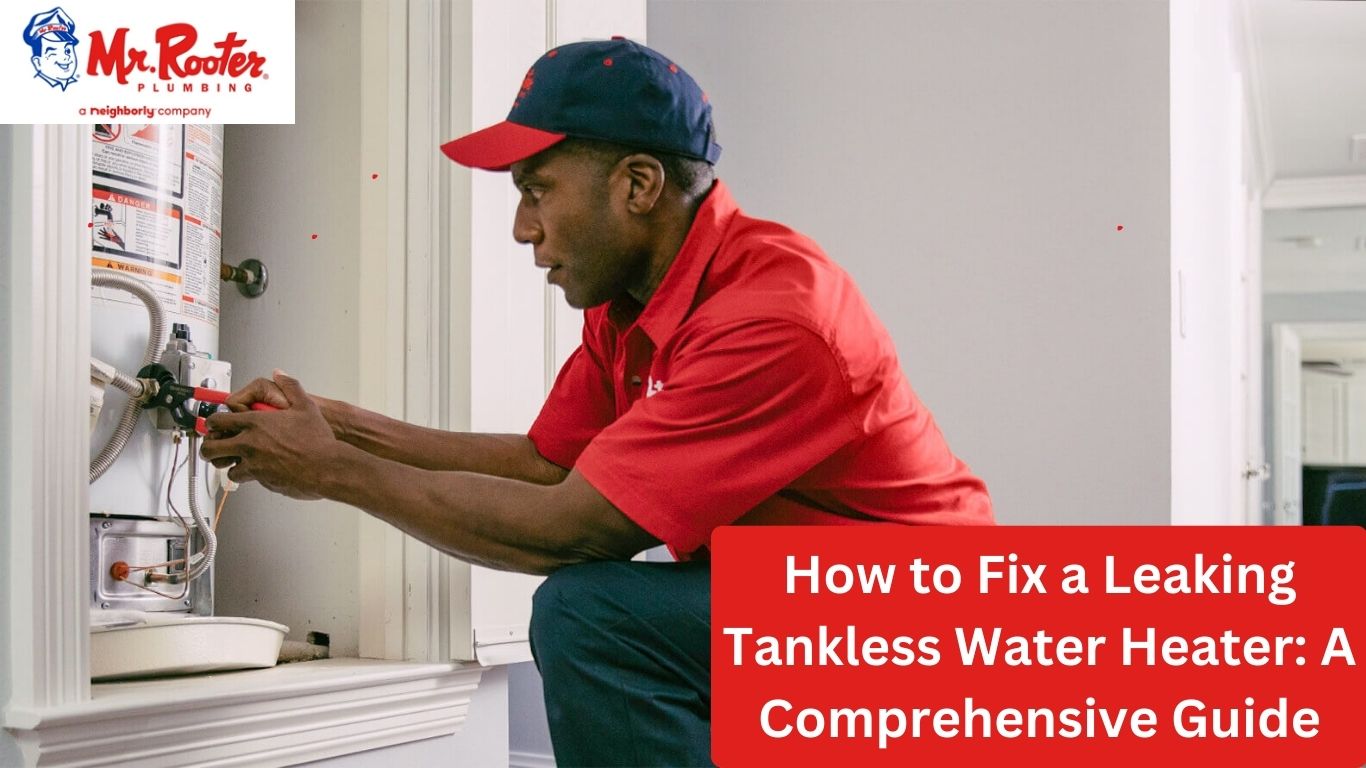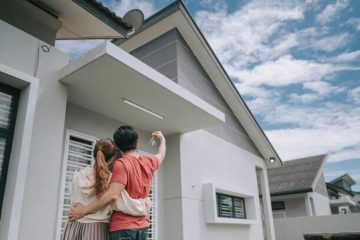Tankless water heaters have become increasingly popular due to their energy efficiency and space-saving design. However, like any household appliance, they can sometimes develop issues. One of the most common problems homeowners face with tankless water heaters is leaking. In this comprehensive guide, we’ll walk you through the steps to identify, troubleshoot, and fix a leaking tankless water heater. If you want to hire a professional plumber in Dallas to fix your leaking tankless water heater, then you can count on the skilled plumbing experts at Mr. Rooter Plumbing of Dallas.
Understanding Your Tankless Water Heater
Before we dive into the fixing process, it’s essential to understand the basics of how a tankless water heater works. Unlike traditional water heaters that store and continuously heat a large tank of water, tankless systems heat water on demand as it flows through the unit. This design eliminates standby energy losses and provides an endless supply of hot water.
Key components of a tankless water heater include:
- Heat exchanger
- Burner (for gas units) or heating elements (for electric units)
- Flow sensor
- Temperature sensor
- Control panel
- Inlet and outlet water connections
- Venting system (for gas units)
Identifying the Source of the Leak
The first step in fixing a leaking tankless water heater is to identify where the leak is coming from. Here are some common areas where leaks can occur:
- Water inlet and outlet connections: These are the most common areas for leaks, often due to loose connections or worn-out seals.
- Pressure relief valve: This safety feature can leak if it’s faulty or if the water pressure is too high.
- Internal components: Leaks from within the unit could indicate issues with the heat exchanger or other internal parts.
- Condensate line (for condensing models): In high-efficiency units, condensation can form and should be properly drained.
- Venting system (for gas units): While not a water leak, issues with the venting can lead to water vapor condensation.
Step-by-Step Guide to Fixing Common Tankless Water Heater Leaks
Leaking Water Connections
If the leak is coming from the water inlet or outlet connections:
- Turn off the water supply and power to the unit.
- Use a wrench to tighten the connections. Be careful not to overtighten, which can damage the fittings.
- If tightening doesn’t solve the issue, you may need to replace the washers or seals.
Faulty Pressure Relief Valve
If the pressure relief valve is leaking:
- First, check your water pressure. High pressure can cause the valve to release water. If the pressure is above 80 psi, you may need to install a pressure reducing valve.
- If the pressure is normal, the valve itself may be faulty:
- Turn off the water supply and power to the unit.
- Place a bucket under the valve to catch any water.
- Carefully unscrew and remove the old valve.
- Apply plumber’s tape to the threads of the new valve.
- Install the new valve, making sure not to overtighten.
Internal Component Leaks
If the leak seems to be coming from inside the unit, it’s best to call a professional plumber in Dallas. Internal leaks often indicate more serious issues like a cracked heat exchanger, which requires expert attention.
Condensate Line Issues
For condensing tankless water heaters:
- Ensure the condensate line is not clogged or kinked.
- Check that it’s properly sloped to allow water to drain freely.
- If the line is damaged, replace it:
- Carefully remove the old line.
- Cut a new piece of PVC pipe to the correct length.
- Attach it securely to the unit and ensure it drains to an appropriate location.
Venting System Problems
For gas tankless water heaters:
- Inspect the venting system for any signs of damage or corrosion.
- Ensure all connections are tight and there are no gaps.
- Check that the vent is properly sloped to prevent condensation from flowing back into the unit.
- If you notice any issues with the venting system, it’s best to consult a professional due to the potential safety risks involved with gas appliances.
Preventive Maintenance Tips
To reduce the likelihood of future leaks and extend the life of your tankless water heater, It’s important to schedule regular water heater maintenance. Check out the key benefits of water heater maintenance.
Here are some of the key preventive maintenance tips:
- Regular Flushing: Depending on your water quality, flush your tankless water heater every 6-12 months to remove mineral buildup.
- Annual Inspections: Have a professional inspect your unit annually to catch potential issues early.
- Check Water Quality: If you have hard water, consider installing a water softener to reduce mineral buildup in your tankless heater.
- Monitor Water Pressure: Ensure your home’s water pressure stays within the recommended range (typically 40-80 psi) to prevent stress on your water heater and plumbing.
- Keep the Area Clear: Ensure proper ventilation around your tankless water heater and keep the area free from dust and debris.
When to Call a Professional
While many tankless water heater leaks can be fixed by a handy homeowner, there are situations where it’s best to call in a professional:
- If you’re uncomfortable working with plumbing or electrical systems.
- When the leak is coming from inside the unit.
- If you suspect issues with the gas line or venting system (for gas units).
- When your DIY efforts don’t resolve the leak.
- If your unit is still under warranty, as DIY repairs might void it.
Conclusion
A leaking tankless water heater can be a cause for concern, but with the right approach, many issues can be resolved quickly and effectively. By following this guide, you can identify common sources of leaks and take appropriate steps to fix them. Remember, regular maintenance is key to preventing leaks and ensuring the longevity of your tankless water heater.
When in doubt, don’t hesitate to contact Mr. Rooter Plumbing of Dallas for a licensed plumber in Dallas. They can provide expert guidance and ensure your tankless water heater continues to provide efficient, on-demand hot water for years to come.
Lastly, always prioritize safety. If at any point you feel unsure about a repair, especially when dealing with gas-powered units, it’s always better to err on the side of caution and seek professional help. Your safety and the proper functioning of your home’s systems are paramount.
Frequently Asked Questions (FAQs)
Q: What are the common causes of leaks in tankless water heaters?
A: Common causes of leaks include mineral buildup from hard water, corrosion of metal components, malfunctioning pressure relief valves, and loose connections at the inlet and outlet.
Q: How can I identify the source of the leak?
A: To identify the leak’s source, turn off the power and water supply, then inspect the unit for visible leaks around connections and valves, and look for signs of corrosion or damage.
Q: What maintenance can prevent leaks in my tankless water heater?
A: Prevent leaks by regularly flushing the system to remove sediment, descaling to prevent mineral buildup, checking and tightening connections, and testing the pressure relief valve.
Q: Should I attempt to fix a leak myself or hire a professional?
A: For minor issues, DIY fixes like tightening connections may work, but significant leaks or internal problems should be handled by a professional plumber for safety and effectiveness.
Q: What should I do if my tankless water heater is leaking?
A: If leaking occurs, immediately turn off the power and water supply, inspect for visible leaks, consult your manual for troubleshooting tips, and contact a plumber if necessary.
Releated: How To Choose Between Tank AndTankless Water Heaters



